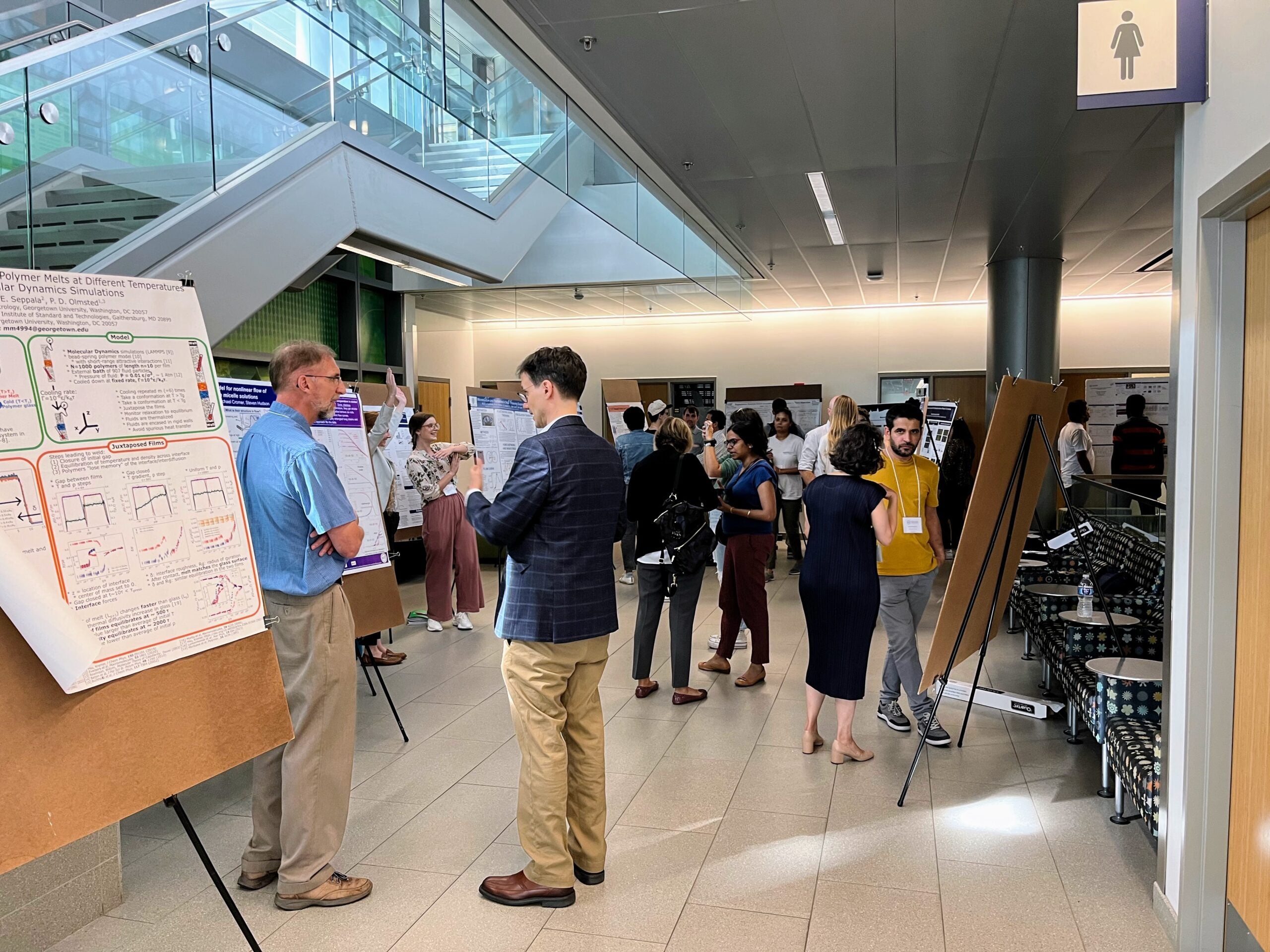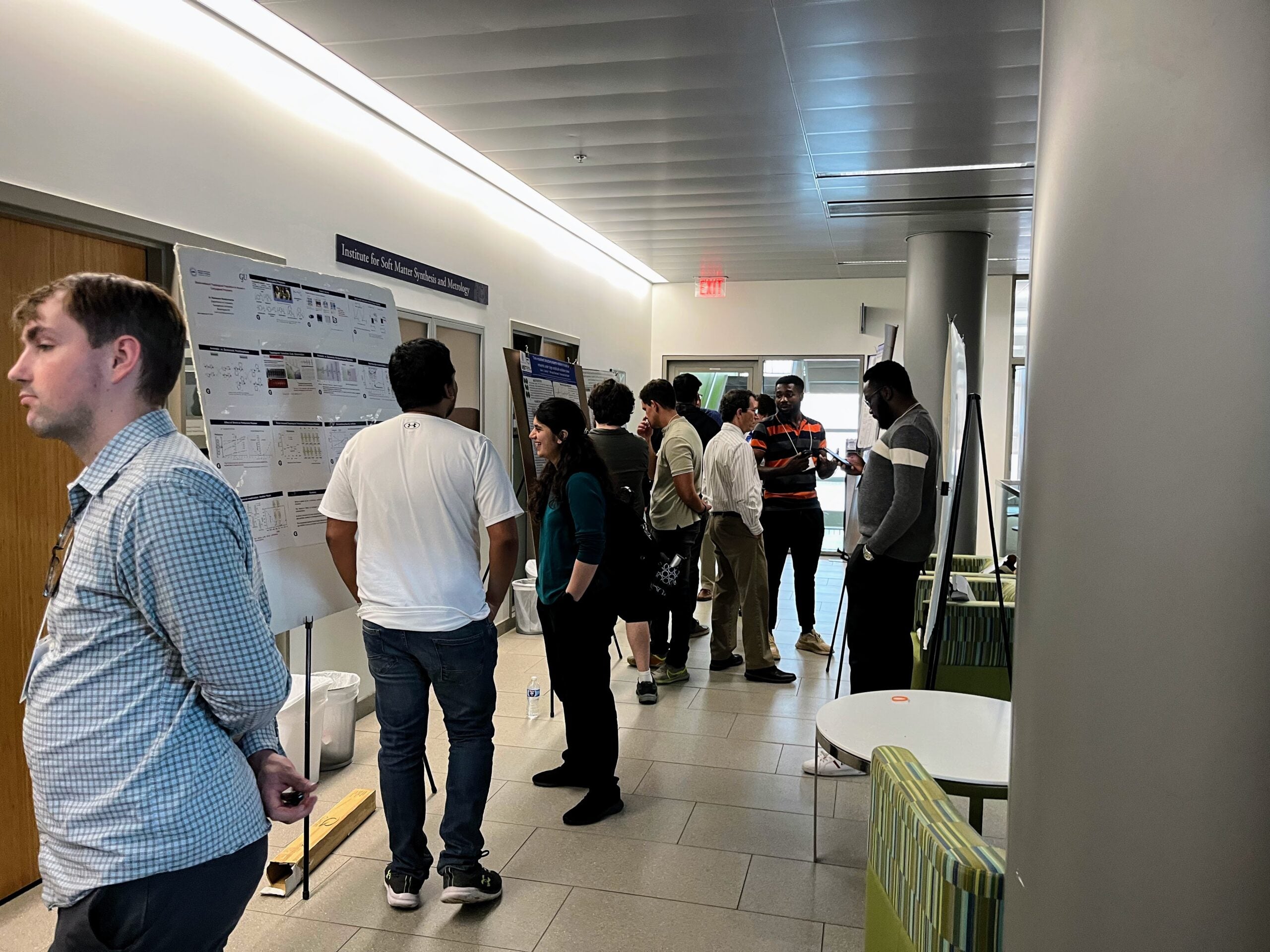Celebrating ISM Day 2023
Posted in News Story

The Institute of Soft Matter Synthesis and Metrology at Georgetown celebrated its second annual ISM Day on Thursday, September 21, 2023. The event gathered researchers from the ISM and broader science community for a chance to connect and touch base on current research. The day began with a welcome given by Prof. Emanuela Del Gado, the Director of the ISM, who updated everyone on the progress of the ISM over the past year. This was followed by talks given by researchers from the ISM, other Georgetown Departments, and the National Institute of Standards and Technology (NIST). The speakers included Profs. Steve Metallo and Peter Olmsted of the ISM, Dr. Mauro Mugnai (ISM-NIST Fellow), Dr. Anthony Kotula (NIST), Prof. Kai Liu (Department of Physics), Prof. Rebecca Helm (Earth Commons Institute, Georgetown), and Prof. Rodrigo Maillard (Department of Chemistry). Additionally, Dr. Tatiana Litvin-Vechnyak, the Vice President of Georgetown’s Office of Technology Commercialization took the stand to discuss options for licensing and applying research developments to innovation and tangible solutions.
In the afternoon, a panel discussion was held where the morning’s presenters, along with the audience, were invited into conversation. The panel discussion was a chance to circulate scientific ideas sparked by the morning’s talks and utilize the intrinsic interdisciplinary nature of the ISM as a framework for building collaborative efforts and interfaces. One focus of the discussion was possible areas for synergies in soft matter research to broaden the societal impact of the ISM. Suggestions included sustainability, as it demands a lot of overlap, and exploring biology through a physics or materials science viewpoint to expand applications of materials. The group also addressed what open problems in soft matter they would like to see solved. Answers ranged from fundamental questions such as polymer crystallization and the glass transition, to how soft matter could be applied to other fields. This included understanding molecular control of biomolecular condensates for potential in medicine or how soft matter can work across different timescales as an architectural material. A question was also posed concerning what key features from a materials standpoint could play the biggest role in advancing current technology and tools. The possibility of dynamic bond materials, but also the importance of being able to reuse or break down materials to ensure sustainability was emphasized. Overall, the panel was a demonstration of the benefits of interdisciplinary communication, as many connections and future possibilities were explored.
The event concluded with a poster session to present research from many of the ISM and NIST labs. Presenters included undergraduate and graduate students, post-doctoral researchers, and PIs. The poster session was an exciting opportunity for researchers to share the developments and hard work that are coming out of their investigations. Event attendees were encouraged to listen and ask questions, taking in the scope of such an exciting area of science. A full list of poster presentations can be found here.
Overall, the event was an amazing opportunity to hear of current research, from the ISM and beyond, and to discuss ways to build interfaces between research interests and apply soft matter experience to future endeavors. A big thank you to everyone who attended this event, and especially those who gave presentations! And an additional thank you to Amy Gould for organizing!

Researchers giving presentations during the poster session 
Researchers giving presentations during the poster session. 
Researchers giving presentations during the poster session
